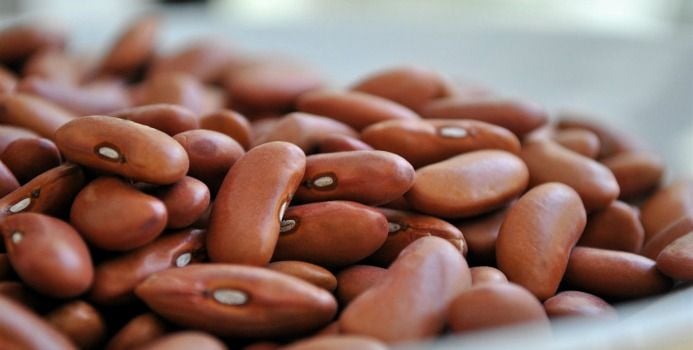2016 has been declared the "Year of the Pulse." What is a pulse? FitSugar explains that "pulses are dry, edible seeds of legumes. While all pulses are technically legumes, the differentiating factor is that not all legumes are harvested to be dried. Fresh legumes like green peas, green beans, and soybeans or legumes harvested for oil extraction (like soybean) aren't classified as pulses."
Basically, they advise, that if its dried and happens to be an edible pea, bean, lentil, or chickpea, then it's probably a pulse.

So why are pulses, or beans, so magical? Well, forgetting the childhood rhyme—beans, pulses, lentils, etc, pack a mighty nutritional punch into their tiny shells.
First, off they are packed with protein, making them practically essential for vegetarians and vegans. Mashed up, you can add, or substitute them with ground beef or as a substitute in tacos, casseroles and even burger patties. Pulses and beans also have a lot of essential nutrients, like iron, magnesium, zinc, potassium, and copper. They are a healthy starch that are high in fiber (hence the side effects), which helps to reduce the risk of heart disease, certain cancers, and Type 2 diabetes. Incorporating beans into your diet can also help with weight management.

The more regularly you include beans and pulses into your diet, the less often you will notice the famous gaseous side effects. Rinsing and soaking dry beans, and rinsing off canned versions before you cook with them, can also help to reduce the possibility of flatulence after a meal.
The American Pulse Association goes one step further and names the most common pulses that you can find in the region:
Dry Peas
Split and/or whole green
Split and/or whole yellow
Beans
Adzuki
Black
Black-eyed pea
Dark red kidney
Light red kidney
Great Northern
Navy
Pinto
Fava
Small red
Mung
Baby lima
Large lima
Cranberry
Pink
Lentils
Regular
Red chief
Pardina
Richlea
Black
Chickpeas
Kabuli
Desi
Although beans are an unsung superfood, they do come with a few risks. Some varieties can cause migraines and allergic reactions, while fava beans raise blood pressure and interfere with certain medications used to treat depression, and can cause gout in people that are susceptible.



